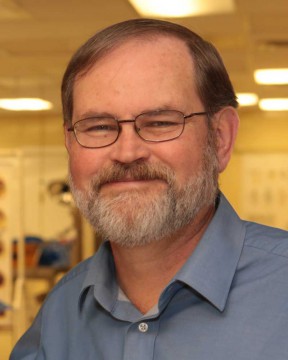The Geisel School of Medicine at Dartmouth has announced the formation of a new Department of Medical Education, which was recently approved by Dartmouth’s Board of Trustees. Rand Swenson, MD, PhD, has been named chair of the new department.
“Our goal is to strengthen the educational experience at Geisel,” said Duane Compton, PhD, interim dean of the Geisel School of Medicine. “We’ve created a structure for undergraduate medical education that will allow for greater cohesiveness, innovation, creativity, and flexibility—in what we hope will be one of the best medical education curriculums in the country.”
The new structure will enhance Geisel’s ability to offer a four-year medical education curriculum that graduates “the complete physician—individuals who excel in the basic sciences, deliver high-quality, patient-centered care, discover and share new knowledge, and improve the system of health care delivery,” said Greg Ogrinc, MD, MS, senior associate dean of Medical Education at Geisel.
“This new department will allow us to deliver a consistent, integrated medical education and develop the faculty who will lead the continuous improvement of our curriculum,” Ogrinc said, noting that courses are currently run by the individual departments.
Plans are underway to create a centralized home for the new Medical Education department, which will soon be fully operational in preparation for the 2017 academic year. It will be located on the Hanover campus near Geisel’s teaching spaces, and will have dedicated administrative support. The new department will also integrate with staff from the biomedical libraries, as well as from various support services for medical education.

“This new structure involves bringing together a core group of faculty members who will have as our primary focus the education and support of our undergraduate medical students,” said Swenson.
The selection process identified faculty members from throughout the school who have shown excellence in medical education and who will have primary appointments in Geisel’s Department of Medical Education. The core faculty will work with other members of the Geisel faculty to ensure coverage of specific areas of expertise and to lead small group discussions.
“Integration of the medical education effort requires faculty to be more engaged across the entire medical education enterprise,” said Swenson. “We expect that having this core group of faculty will afford new opportunities for integration, and help us to incorporate novel and innovative methods of teaching.”
“I believe the new department will enhance medical student education through cross-specialty collaboration in curricular development and teaching,” said Adam Weinstein, MD, director of pediatric medical student education and co-director of the year-two On-Doctoring course at Geisel—one of the first and most robust experiential learning programs in the country. “In this manner, essential curricular content can be better reinforced and built upon month to month, and year to year.”
Forming the new department will also offer new avenues for academic achievement to faculty. “Members of this department will have the same opportunities for professional advancement as do members of other departments and they will be expected to meet comparable criteria in terms of excellence in teaching, recognition by peers on a regional to national/international level, and scholarship,” said Leslie Henderson, PhD, senior associate dean for faculty affairs at Geisel.
“However, they will also have the opportunity for that research and scholarship to be not only in specific areas of biomedical endeavor, but also in biomedical pedagogy or even at the intersections of the two,” said Henderson.
Having Geisel’s core faculty not only teach, but also produce scholarship in the field of medical education “will better position the faculty to share and participate in research and innovations nationally, and it should improve our own students' educational experiences,” added Weinstein.
For Geisel’s learning community, it will mean having easier access to faculty that are dedicated to medical education and that have a broader and more longitudinal view of what they’re going through within the curriculum.
“Having a dedicated group of faculty members who will be meeting and talking to each other regularly will give us an unparalleled level of consistency and continuity,” said Swenson. “That will mean medical students should see a lot more of their faculty and be able to develop strong relationships with them. This should help us to create a better support system for them, especially during the difficult period of transition to medical school.”